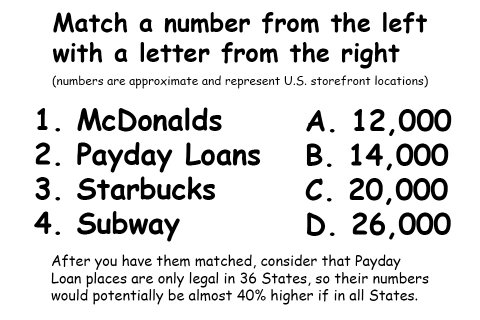
The label “tribal lender” is commonly used to describe credit and lending institutions that are based in a federally recognized American Indian reservation or operated by an American Indian community. Tribal lenders can be informally grouped into two categories, based on to whom they lend money:
- Lending to tribal members
- Lending to non-tribal members
Tribal lenders can provide many of the same type of loans and financing products as traditional lenders, to individuals throughout the United States. However, tribal lenders may be able to avoid some of the state law restrictions that are placed on many state-licensed lenders, because tribal lenders are considered to be domiciled on American Indian reservations – which are, in turn, protected as sovereign territories. The same tribal lender can also lend to both tribal and non-tribal borrowers.
Lending to tribe members
Some tribal lenders work closely with tribal governments in order to customize loans that meet the needs of particular tribes, as well as any of the unique circumstances that may come about as a result of purchasing land and other assets.
In doing so, many tribal lenders do not require the land or asset being purchased to be used as collateral for the loan. Rather, these institutions will often allow alternative streams of income such as land revenue to be used in securing the loaned funds.
Tribal lenders provide a number of different services to tribe members, including:
- Credit counseling
Lending to non-tribe members
As noted above, tribal lenders based on recognized American Indian reservations are exempt from having to follow many state regulations regarding their lending activities. Instead, tribal lenders are governed by the regulations of their home reservation and applicable federal government regulations.
This has allowed tribal lenders to provide financial products or follow certain lending practices that may not be otherwise allowed in many states. For example, many states have usury laws that limit the interest rates that a lender may charge to residents of that state, as well as apply other lending restrictions. Tribal lenders may be exempt from many of those regulations.
Similarly, many states require mortgage, payday and personal loan lenders to be properly licensed before they can operate in each those states. Again, tribal lenders may be exempt from state-required licensing requirements.
Regulations that are imposed
Regulation of tribal lenders is based upon the concept of “tribal sovereignty.” This means that the United States government recognizes these entities as their own domestic dependent nations that have the inherent authority of governing themselves within the U.S. borders.
This also means that because tribes are considered to be separate from both state governments, states are essentially powerless in regulating such lenders. However, the federal government may still do so.
Because loan transactions that are made via tribal lenders are not protected through state consumer protection legislation, in the event of a dispute, it may be unclear as to which governing laws to follow. Consumer recourse may be limited.
In 2012, the Native American Financial Services Association was formed for the purpose of both protecting and advocating Native American sovereign rights. The organization also helps in enabling tribes to provide more responsible online lending products and services.
Disclaimer: NetCredit is a direct personal loan provider and does not provide financial advice, nor does it vouch for any vendor or service mentioned on our NetCredit personal finance blog or online consumer loan glossary. Always research and perform due diligence on any service provider or vendor before deciding to use them, and we recommend that you speak with a financial advisor regarding all decisions that will affect your finances.
Interesting facts
Additional information
















